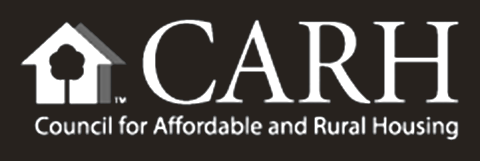CARH’S BROADCAST EMAIL – Legislative Update
March 23, 2018
Omnibus Appropriations Bill for Remainder of FY 2018 Passes House and Senate--Contains Provisions to Help the Housing Credit Program
Late on the evening of March 21st, Congress unveiled a $1.3 trillion omnibus spending package H.R. 1625, Consolidated Appropriations Act, 2018, which includes funding for all of the agencies and programs through the remainder of Fiscal Year (FY) 2018, which ends on September 30, 2018. On March 22, by a vote of 211-207, a procedural vote passed the House of Representatives amid objections from both Republicans and Democrats regarding procedures followed for voting on the bill and concerns over the increase in funding, as well as not knowing the substance of the 2,232 page document. With passage of the procedural vote, the House then passed the omnibus package by a vote of 256-167. The legislation was then sent to the Senate where, early this morning, H.R. 1625 passed by a vote of 65-32, thereby avoiding another government shut-down since the current Continuing Resolution (CR) expires at midnight tonight. President Trump is expected to sign the legislation into law.
In addition to the spending part of the legislation, there are some revenue provisions, two of which favorably impact the Housing Credit program. There will be a 12.5% increase in the 9% credit per capita state housing ceiling for the next four years beginning in 2018. In other words, the current $2.40 amount and the small state minimum will each be increased by 12.5% for each of the four years. Accordingly, the 2018 per capita amount will be approximately $2.70 for non-small states. The bill also contains the income averaging provision from the Cantwell/Hatch and Curbelo/Neal proposals. As CARH members know, Rural Development (RD) has been resistant to tiered rents as a policy matter, but has guidance to permit “tax credit rents.” RD may have to revise its policy to allow the full benefit of income averaging to RD properties with Housing Credits. The bill does not contain the minimum 4% floor for bonds or allocated acquisition credits. Thus, no other provisions were included related to the Housing Credit or Housing Bond programs. The increase in the allocation will hopefully lessen the impact that Tax Reform has had on the value of credits.
Turning to the spending side of the omnibus, this legislation represents the largest federal spending increase to pass the Congress in years. The bill will fund the government and agencies and programs administered by those agencies for the remainder of the year. As CARH members can see from the attached charts, the Department of Housing and Urban Development (HUD) and the Department of Agriculture’s Rural Development (RD) programs fared much better than the Administration’s proposed budget for FY 2018, which in many ways mirrors the proposed budget for FY 2019.
In terms of RD, the Section 521 Rental Assistance (RA) program would be funded at $1.345 billion. While on the surface it appears to look like a reduction in funding from the FY 2017 level of $1.405 billion, $60 million of FY 2017 monies were carried over into FY 2018 to fund contracts that were to be renewed during the early months of the new fiscal year. This policy will continue in FY 2018, with the ability of the agency to carry over $40 million.
The Section 538 Guaranteed Rural Rental Housing program would have $230 million in authority. The Section 515 program would receive $40 million in funding, with the Multi-Family Revitalization and Preservation (MPR) program being funded at $22 million with an additional $25 million for vouchers, which is a significant increase to protect current and anticipated rural voucher recipients. Of disappointment is the apparent decision of the House and Senate to fund the Assistant to the Secretary position and not re-elevate and fund the Undersecretary for RD. Still, there is savings language in the report accompanying the omnibus that specific directions, reports, and requests by either the House or Senate of the agencies remain. Thus, the Senate directive that the Administration nominate someone for the Undersecretary position is still in effect. This is something that will need to be clarified moving forward.
On the HUD side, funding across the Department increased to $52.7 billion for FY 2018, from $48 billion for FY 2017. There was a surprise increase to the HOME program, which in recent years has been both on the chopping block and subject to reductions in funding. For FY 2018 this funding trend would be reversed and the HOME program would receive $1.362 billion, up from $950 million from FY 2017. Project-based rental assistance increases to $11.515 billion; Tenant-based rental assistance increases to $22 billion; Public Housing Operating Fund up to $4.55 billion; Public Housing Capital Fund increased about 40% to $2.75 billion; CDBG increased to $3.365 billion; and Choice Neighborhoods would be funded and increased $12.5 million to $150 million.
HUD’s Rental Assistance Demonstration (RAD) program was also expanded, raising the “first component” authorization from “225,000” units to “455,000” units, authorizing through FY 2024, and allowing Section 202 PRAC assisted properties to restructure under the RAD program.
Additionally, at the Department of Treasury, the Community Development Financial Institutions (CDFI) Fund is funded at $250 million, up from $248 million in FY 2017.
CARH would like to take this opportunity to thank all CARH members who continued to contact their members of Congress after tax reform passed last year to discuss the impact of lower corporate rates on the Housing Credit program as well as funding for programs in FY 2018. At their last meeting two weeks ago in Washington, DC, CARH’s board of directors discussed the Housing Credit and Housing Bond programs as well as funding for affordable housing programs during their meetings on Capitol Hill. There is no question that these meetings helped solidify in many members of Congress minds the need to make some changes to the Housing Credit program as well as the need to provide additional funding for the housing programs important to the industry and residents who live in the properties.
In addition, CARH would like to thank the unending support received and leadership shown by Senators Orrin Hatch (R-UT) and Maria Cantwell (D-WA) (see S. 548) and, on the House side, former Representative Pat Tiberi (R-OH) and current Representatives Carlos Curbelo (R-FL) and Richard Neal (D-MA) (see H.R. 1661) for the Housing Credit program and affordable housing. CARH will continue to push for enactment of other provisions contained in the aforementioned bills.
The next battle will be the FY 2019 funding bill and also a push for further funding of infrastructure proposals. While the Administration’s infrastructure proposal does not include funding for housing in its infrastructure initiative, on March 7th, the Senate Democrats unveiled their infrastructure proposal which, in fact, does include a substantial commitment for funding for housing.
Don’t miss CARH’s upcoming Annual Meeting & Legislative Conference, June 18-20, where the FY 2019 budget proposals, Housing Credits, and much more will be discussed in detail. Registration for the meeting will be announced in the next few days.
If you have any questions, please contact CARH at carh@carh.org or 703-837-9001.
Don’t miss CARH’s 2018 Annual Meeting & Legislative Conference on June 18-20
at the Ritz Carlton Pentagon City in Arlington, Virginia! |



